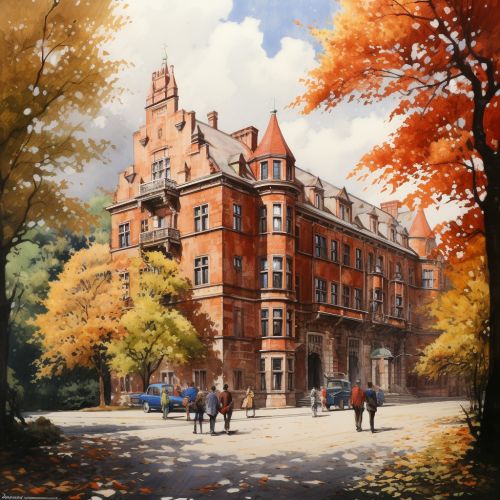Nicolaus Copernicus
Early Life
Nicolaus Copernicus was born on 19 February 1473 in the city of Toruń, in the province of Royal Prussia, in the Crown of the Kingdom of Poland. His father was a merchant from Kraków and his mother was the daughter of a wealthy Toruń merchant. Nicolaus was the youngest of four children.
Education
Copernicus began his education at the St. John's School in Toruń. He then attended the Kraków Academy (now the Jagiellonian University), where he probably first encountered astronomy, which would become his life's passion. After his father's death, his maternal uncle, Lucas Watzenrode the Younger, took the responsibility of his nephew's education and guided him through his further studies.


In 1496, Copernicus, under the guidance of his uncle, travelled to Italy to study law at the University of Bologna. Here, he shared a room with the principal astronomer at the university, Domenico Maria Novara da Ferrara. It was likely Novara who introduced Copernicus to the idea of a heliocentric solar system – a concept that would later become the focus of Copernicus' own work.
Career
In 1503, Copernicus returned to Poland and his uncle's bishopric in Warmia, where he worked as a secretary and physician to his uncle in the Bishop's castle at Lidzbark Warminski (Heilsberg). He spent a significant part of his life here, and it was here that he conducted much of the scientific observation and research that would lead to his major astronomical work.
Heliocentric Theory
Copernicus is best known for his theory that the sun, not the earth, is at the center of the universe, a concept known as the heliocentric theory. This was a revolutionary idea at the time, as the prevailing Ptolemaic model held that the Earth was at the center of the universe with all other celestial bodies revolving around it.
Copernicus' heliocentric theory was first circulated in manuscript form before finally being published in his seminal work, De revolutionibus orbium coelestium (On the Revolutions of the Celestial Spheres), just before his death in 1543.
Death and Legacy
Copernicus died on 24 May 1543 in Frombork, Poland. His revolutionary ideas about the universe were controversial at the time of his death, but in the centuries following, they were widely accepted and formed the foundation for modern astronomy.
